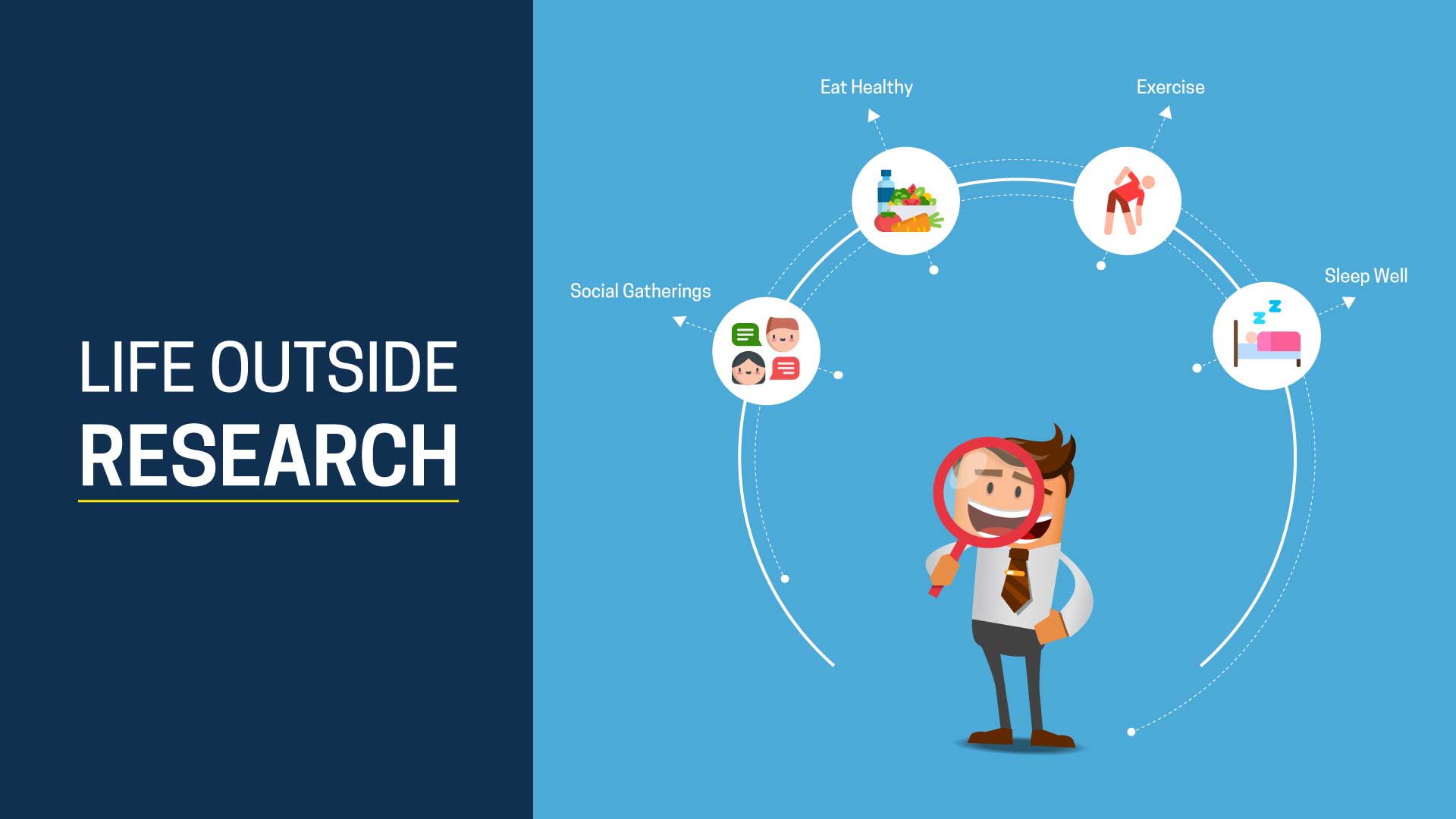Life Outside Research

If we knew what it was we were doing, it would not be called research, would it? -Anonymous
In the quest for knowledge and answers, the boundary between work and personal life of a researcher starts fading away. With deadlines looming and work not getting anywhere researchers get very little time to spend with loved ones or engage in other activities that they enjoy. Researchers try to build a network of people who understand the Ph.D. journey and can compound their study. As important as that is, it’s also essential to take breaks. This means you need to have something in your life that, at regular intervals, can serve as an incentive and a way of replenishing your energy.
There is a common belief that research is a way of life and those who want to have a life outside research cannot stay committed to research. This is untrue.
A Ph.D. is the equivalent to running a marathon: it is long, difficult and exhausting. To replenish the energy to keep oneself going for the next day is vital. Time management becomes one of the most touched upon topics at this point. Effective time management is a skill that needs to be honed to reap its full benefits. You have more time than you think, you will be surprised to know how much more time you have than you previously thought when you start managing time effectively. Below are some pointers to maintain a balanced life while doing your Ph.D. or research.
Catching up with friends and making new acquaintances helps you relax and broaden your world view. It also will help quench your need for social interactions with others. However, if you enjoy solitude, you do not need to force yourself into it.
Eating Healthy does not mean eating green leafy vegetables. Having good eating habit ensures your body gets a balanced diet. There are specific food items that are healthier than the others and hence need to be included in your diet compulsorily, let’s not delve into the details here, we will address that in a separate blog.
- Exercise
A researcher lives a sedentary life for the major part; this creates a dearth of physical activity. This can be combated by exercising for just a few minutes every day. You will be amazed to see how much you can accomplish in a day when you take good care of your body. Take time and find out which exercise works well for you. You don’t even have to set aside a separate time for exercise in your schedule; you can do it in between tasks. For instance, take the stairs instead of the lift or heading out for lunch instead of getting it delivered to your table. Waking up at 5 AM for a jog would be too much to ask but is not discouraged. If you can make time for this, please do.
- Sleep Well
7-8 hrs of sleep are optimum numbers for you to be working at your best. Again, these are ideal numbers, and we usually chip off some hours of sleep to make time for activities that aren’t completed from the schedule, try to get 6 hrs of sleep at the least.
Maintaining a life outside your research is difficult with all the work that takes up your time, but it is not impossible. Follow the pointers discussed above and you will slowly start having a work-life balance.

 Previous Post
Previous Post Next Post
Next Post